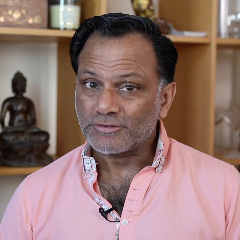You are not currently logged in. Please create an account or log in to view the full course.
What is a memory?
- About
- Transcript
- Cite
Memory – Abnormal Forgetting
In this course, Dr Ashok Jansari (Goldsmiths, University of London) explores abnormal forgetting. In the first lecture, we think about what information makes up a memory. In the second lecture, we think about abnormal forgetting and the forms in which it can come. Next, we think about the case of Henry Molaison (HM) and what he has taught the psychological world about memory. In the fourth and final lecture, we think about dementia, its symptoms and its treatments. Image Credit: Photo by Muyuan Ma on Unsplash
What is a memory?
In this lecture, we think about what information makes up a memory, focusing in particular on: (i) the role of the senses in enhancing the richness of memory, but also resulting in its increased complexity; (ii) the role of the brain in combining sensory input into the overall memory experience; (iii) the four stages of the memory process being encoding, linking, storing and retrieving; (iv) physiological and mental events which can lead to problems with each of these four stages; (v) the importance of decay/forgetting in the prioritisation of memories; (vi) Alexander Luria’s patient, known as S, who was unable to forget; (vii) Hermann Ebbinghaus, who formulated the forgetting and learning curves; (viii) Ebbinghaus’ discovery, through attempting to learn syllable pairs, that the greater the time passed between learning and retrieval, the poorer retrieval was; (ix) Ebbinghaus’ forgetting curve.
Cite this Lecture
APA style
Jansari, A. (2024, July 09). Memory – Abnormal Forgetting - What is a memory? [Video]. MASSOLIT. https://massolit.io/courses/abnormal-forgetting
MLA style
Jansari, A. "Memory – Abnormal Forgetting – What is a memory?." MASSOLIT, uploaded by MASSOLIT, 09 Jul 2024, https://massolit.io/courses/abnormal-forgetting

